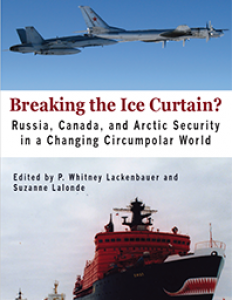Breaking the Ice Curtain? Russia, Canada, and Arctic Security in a Changing Circumpolar World
Arctic SovereigntyBy P. Whitney Lackenbauer and Suzanne Lalonde, 26 April, 2021
Over the past few decades, Canada and it’s NATO allies have taken a very assertive stance vis-à-vis our relations with Russia. With Canadian troops now providing the core of the NATO Enhanced Forward Presence (EFP) Battle Group in Latvia, we are literally providing deterrence at the Russian doorstep. This posture is aligned with Canada’s previous actions as seen with the Ukrainian crisis, where Canadian troops continue to train the Ukrainian Security Forces as part of Operation Unifier. Additionally, the Trudeau government has extended the Canadian military mission to fight against the remnants of ISIS by another year and is pledging to commit $43.6 million to stabilization programs in Iraq and Syria; Russia is currently heavily engaged militarily in the region.
However, this aggressive stand-off does not currently extend to the Arctic. Breaking The Ice Curtain will show that both Canada and Russia share a set of priorities as they collaborate on Arctic issues. Both Canada and Russia are heavily engaged in The Arctic Council and there is significant cooperation and dialogue concerning Indigenous rights, preserving the maritime environment, and security and economic collaboration.
We recognize that there are significant Arctic issues which must be addressed in the near term. RAUSI is optimistic that through continued dialogue and ongoing engagement with The Arctic Council, solutions can be found which will benefit each participating nation, bolster their economies, and have a positive impact upon all residents of the Arctic region.

